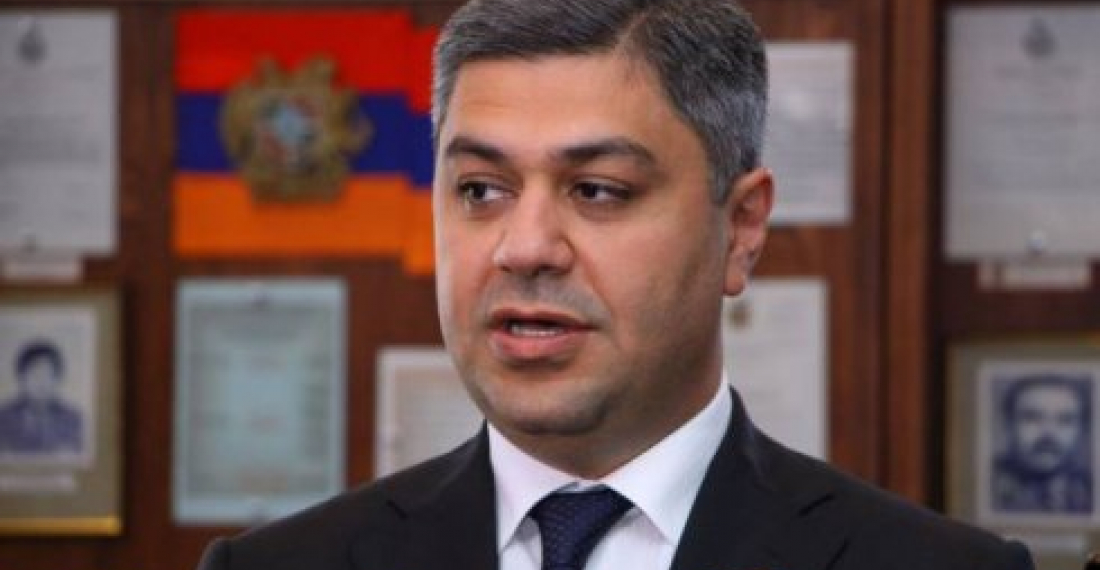The Head of Armenia's National Security Service, General Artur Vanetsyan resigned over the weekend, and his resignation has been accepted. This was confirmed by Armenia's prime minister, Nikol Pashinyan, whilst he was addressing a marathon press conference in the Armenian town of Vahadzor on Monday (16 September).
Vanetsyan was appointed to the post immediately after the change of power in Yerevan in the Spring of last year. He has been a prominent face of the new government, and was instrumental in bringing forward cases against former officials accused of corruption and abuse of power. Clearly however his relations with prime minister Nikol Pashinyan had not been easy.
On Monday, Vanetsyan issued a statement addressed to the wider public, which contained thinly veiled criticism of Pashinyan and his style of leadership. The statement said:
"Dear compatriots,
Distinguished officers of the National Security Service of the Republic of Armenia,
I hereby inform you that I have made a decision to submit a letter of resignation from the position of the director of the National Security Service of the Republic of Armenia. In the current situation and in the context of the forthcoming, I consider such a decision as most preferred and most well founded option for serving to the Republic of Armenia and to my fellow compatriots.
I have made this decision with same confidence, as the one of agreeing to assume the office of the director of the National Security Service during that decisive period for our country.
My service of the past year and a half has been in front of you all; I have made every step guided by one principle: the Homeland and the honor of an officer are above everything.
Statebuilding has its logic. Spontaneity of decisions, the turbulence of actions and the workstyle of not distinguishing primary and secondary, ephemeral and substantial issues is not the road that will lead towards fulfilling our goals. That does not have anything in common with the officer's dignity: officer's stripes and such flow of developments are incompatible.
Let my resignation be a sobering move calling "Stop it!": in all other options the duty to the Homeland will prevail. May peace and security be with our country."
There was a quick, and equally sharp rebuke from the spokesperson of Prime Minister Pashinyan, Vladimir Karapetyan. In a comment to Armenian media, Karapetyan said,
"It is necessary to find out who wrote the text ascribed to Artur Vanetsyan. We hope the author of the text is not someone from a PR office of corrupt officials who have "erroneously" avoided criminal liability. We urge General Vanetsyan not to lose the dignity of an officer to which he makes a reference.".
The two statements have already caused a lot of speculation in Armenian political circles, and comes at a moment when the government is trying to push through a number of key changes in the Judiciary. The post of Head of the National Security Servvice is a key one in Armenia, even more so than in other countries, and this resignation is probably the most important one since the new government took power last year.
source: commonspace.eu with News.am, Armenpress and agencies
photo: Former head of the Armenian National Security Service, Artur Vanetsyan






